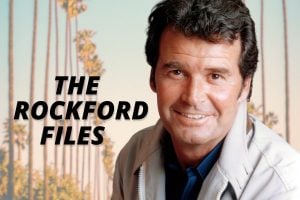Motown: They’re rocking in Detroit — and selling, too (1965)
By Peter Hoffman – Corpus Christi Times (Texas) July 5, 1965
Detroit — Until recently, this motor town’s chief contributions to the American culture might be rated as dual headlights, the tailfin and the throb and rumble of hot V-8s.
But for the last year or so, the hot, hard-driving rhythms of Motown, a record company, have put Detroit on the music map.
The Supremes, three Negro girls who are Motown’s star performers, recently picked up a cool $100,000 in royalties — each — from record sales in the previous six months.
 The Supremes dash around the country making personal appearances and taping TV shows, as well as recording. This summer they will play for one month at New York’s Copacabana.
The Supremes dash around the country making personal appearances and taping TV shows, as well as recording. This summer they will play for one month at New York’s Copacabana.
In April, they and other Motown artists made a three-week tour of England, France and Germany.
The Liverpool Daily Post, The Beatles’ hometown paper, called the show “electric.” The paper said, “so far as rhythm and blues is concerned, these Detroit people most certainly have a superb stage act. By comparison, Britain’s pop singers look like garden party amateurs.”
In Hamburg, Germany, there the Supremes appeared on television, a newspaper gushed that they are “America’s sweetest girls” with “voices clear as bells” and who are “slim and supple like pussy willows.”

Diana Ross, lead singer, said “We almost got thrown in jail in Paris. We were taping a show for French television where we were supposed to sort of dance down the Champs Elysee, weaving in and out of traffic while we were lip-synching,” (synchronizing the movement of their lips to one of their recordings). “They wanted to arrest us for obstructing traffic,” she said. No charges were filed.
The European reviewers loved Motown’s brand of bluesy pop singing with its faint gospel overtones, but the concert halls were only half-filled part of the time. “When I’m traveling with my girls, I lose a lot of money,” boss Berry Gordy, Jr. told a Hamburger Abendblatt reporter.
But Gordy, 36-year-old former assembly line worker who is now one of America’s top pop record producers, was publicizing the fact that Motown is starting to distribute records in Europe.
A recent week in which company artists occupied eight of the top 55 spots in the best-selling 100 was described by a company spokesman as typical.


Motown Records one of the largest single producers
Motown Record Corp is currently the second largest producer of singles. It ranks right behind Capitol Records — which holds the US distribution rights for The Beatles.
Last year, Motown grossed about $10 million. In addition to its seven record labels — Tamla, Motown, Gordy, VIP, Soul, Melody and Jazz Workshop, it includes a talent management office, a sales corporation and a music publishing firm.
Motown owner Gordy, who once was a Golden Gloves boxer, built his company in a little over five years.
After borrowing some $700 from his family, he quit his $85-a-week job installing upholstery trim at the Lincoln-Mercury Division of the Ford Motor Co and produced his first master recording, “Come To Me,” sung by Marvin Johnson.
A few hits later, singer Smokey Robinson, now at 25, the firm’s youngest vice president, urged Gordy to go it nationally on his own.

Unlike most companies which record on three-track tape, Motown uses custom-built machinery that records eight separate tracks at each session.
Producers and sound engineers can mix the eight in any proportion they want, creating special effects, overdubbing, distorting, emphasizing, for example, the insistent thump of the rhythm section, or suppressing the background strings, usually hired from the Detroit Symphony Orchestra.
Practically all of Motown’s some 100 performers were born and reared in and around Detroit. Exceptions are singer Tony Martin, who joined Motown last fall, and Billy Eckstine, who after years of occasional recordings with different firms, recently signed an exclusive three-year contract.
Gordy commented that while he likes “to build talent,” it would be “uneconomical to turn down top talent that could benefit the company.”
Motown is still largely a Gordy family enterprise. Members of the family hold most of the stock and two of Gordy’s sisters are vice presidents. The administrative staff is about half white and half Negro. Almost all the artists are Negro.

Motown’s Gordy scores again, Talent for spotting stars (1970)
By Vernon Scott in Hollywood – The Tennessean (Nashville, Tennessee) May 24, 1970
In the throbbing jungle of pop music with its thousands of singers, hundreds of labels and “top 100 charts” one man has emerged as Number One.
He is Berry Gordy Jr., a black creative executive who heads Motown Records.

Gordy is of medium height, wears his hair “natural” and sports a beard. A former boxer, he is trim, quick and bright. More important, he is a perfectionist with a special sense for what record buyers dig.
It was Gordy’s Motown that brought stardom to Diana Ross and the Supremes, Steve Wonder, Smokey Robinson, The Four Tops and others.
Now he has come up with a group, The Jackson 5, which has pushed the Beatles out of first place in the charts with a hot-selling single titled “ABC.” The group consists of five brothers ranging in age from 10 to 18 years. Lead singer is Michael Jackson, the youngest.

Singers, groups, recordings and so-called hits are transient. Rare is the record that tops the charts for more than a few weeks.
But Berry Gordy, Jr. is something else again. He’s built Motown (an amalgam) for Motor Town-Detroit from a shoestring operation into one of the largest, most successful music empires in less than a decade. How has he done it?
“First of all, I never expected anything this phenomenon, Gordy said from a hillside estate that once belonged to Tommy Smothers.
“It’s a matter of weighing and judging talent. When I look at any artist or listen to a group, I try to determine how much poise they have and their ability for growth as human beings. “For instance, the Jackson 5, are five loveable boys, well brought up. And Michael Jackson has that rare star quality everyone looks for.
“The minute I saw Michael and the group, I knew they had the potential.”
Gordy spun ABC on his stereo. the sound was defined as soul bubble gum. The melody is simplicity itself, the beat driving and the lyrics amusing, if at first difficult to decipher.

Then he played a new Diana Ross single, “Reach Out and Touch Somebody’s Hand,” which already had reached the charts after less than a week of release.
“You have to keep the opposition off balance,” Gordy explained. “Diana’s new song is a waltz with a spiritual overtone. “When it first came out people couldn’t believe that a waltz would sell these days. They’re wrong. This is the most exciting time for music in history. Everything goes: rock, folk, country, waltz, talking records.
“The key is to produce good music. High quality. The kids are looking for a message in the lyrics. Some of them are inspirational messages and have a gospel sound. “At Motown, we try to put three elements together, quality, originality and courage plus a little soul.”
Gordy defines soul in music as “conviction and sincerity.” His formula works. In the past week, 10 percent of the records in the top 100 were Motown products.
“Motown doesn’t want any part of the drug scene in lyrics,” Gordy concluded. “We put it down whenever we can.”
Berry Gordy’s Motown Records still flying high (1971)
by Robert Hilburn – Anderson Herald Bulletin (Anderson, Indiana) June 1, 1971
Berry Gordy, the man behind Motown Records, placed the first pressing of the new Diana Ross recording on the turntable in his dimly lit office here and settled back in his chair to let his musical instincts, which have been spectacularly correct over the years, work for him yet another time.
Gordy, his eyes closed, concentrated on the sounds of the orchestra and, most importantly, Miss Ross’ voice — the voice that as lead singer for the Supremes helped turn Gordy from a promising young record man in Detroit into one of the titans of the record industry.
It’s been a dozen years now since Gordy, who had already written a few hits (including “Money” and “Lonely Teardrops”) and produced some records for other companies, borrowed $800 from his family to start his own label. Frustrated in previous dealings with record executives, Gordy had some special ideas about artist-management relationships that he wanted to pursue with his new company.

Motown Records: Success since Smokey
Since his first million-seller (Smokey Robinson’s “Shop Around”), Motown has established a track record that is without parallel in the music business. No one has turned out as high a percentage of hits (nearly 80 percent in 1970) as Motown, and no one has been able to weave so successful a publishing-recording-management complex as Motown.
In building Motown, Gordy found and developed such artists as Diana Ross, the Supremes, Stevie Wonder, the Temptations, the Four Tops, Smokey Robinson and the Miracles, Marvin Gaye, Gladys Knight and the Pips, Martha Reeves and the Vandellas, Edwin Starr, Junior Walker — and youngest but far from least, The Jackson Five.
A key to Motown’s success has been the personal supervision Gordy has given to the artists on the label and the Motown product. The company’s growth has been rapid but it has not been so fast that Gordy has lost personal control. He has resisted the temptations to sell Motown for a huge profit or to turn over the reigns of leadership to someone else while he merely enjoyed the luxury of his early profits.

Thus, in 1971, Gordy is still making records. The instincts are still working. Two Motown products — the Temptations’ “Just My Imagination” and Marvin Gaye’s “What’s Going On” — have been No 1 and 2 on the national sales charts.
But Gordy and Motown also have some new targets. It is because of those targets — motion pictures and television — that Gordy has brought Motown to Los Angeles.
As the Diana Ross record spins, a couple of associates sit near Gordy, waiting like court secretaries for the judge’s verdict.
“I think Diana is oversinging,” Gordy says as the record ends. “When you have a talented performer like Diana, she can almost be too good. I think we’ll have to do the vocal again. She always puts her heart into her work. She won’t like it when I tell her about the record, but she’s always open-minded. She’ll go back into the studio and really work hard. This is one of the things about Diana that makes her a superstar.”
Berry Gordy and Diana Ross
The close Gordy-Ross relationship has, of course, been an important part of the Motown story. With Miss Ross’ continuing success, it is only natural, perhaps, that Gordy, still following those instincts, is sticking close to her as he moves slowly but surely into new areas of entertainment.
Miss Ross is the star of Motown’s first self-produced television show, which aired Sunday, April 18, and will star in Motown’s first major motion picture, a $5 million budget production of blues singer Billie Holiday’s life.

The point of the television special and other Motown production ventures is not merely to build Motown artists and songs, Motown Vice President Michael Roshkind points out. Motown is out to establish itself in these new areas, thus the quality of the show is of chief concern.
“There is no area in the whole broad spectrum of the entertainment business that we are not at least prepared to probe,” says Roshkind. “We probed into television a little by co-producing a couple of shows, now we’re into television whole hog. We probed in motion pictures, and now we’re moving into that area.”




















